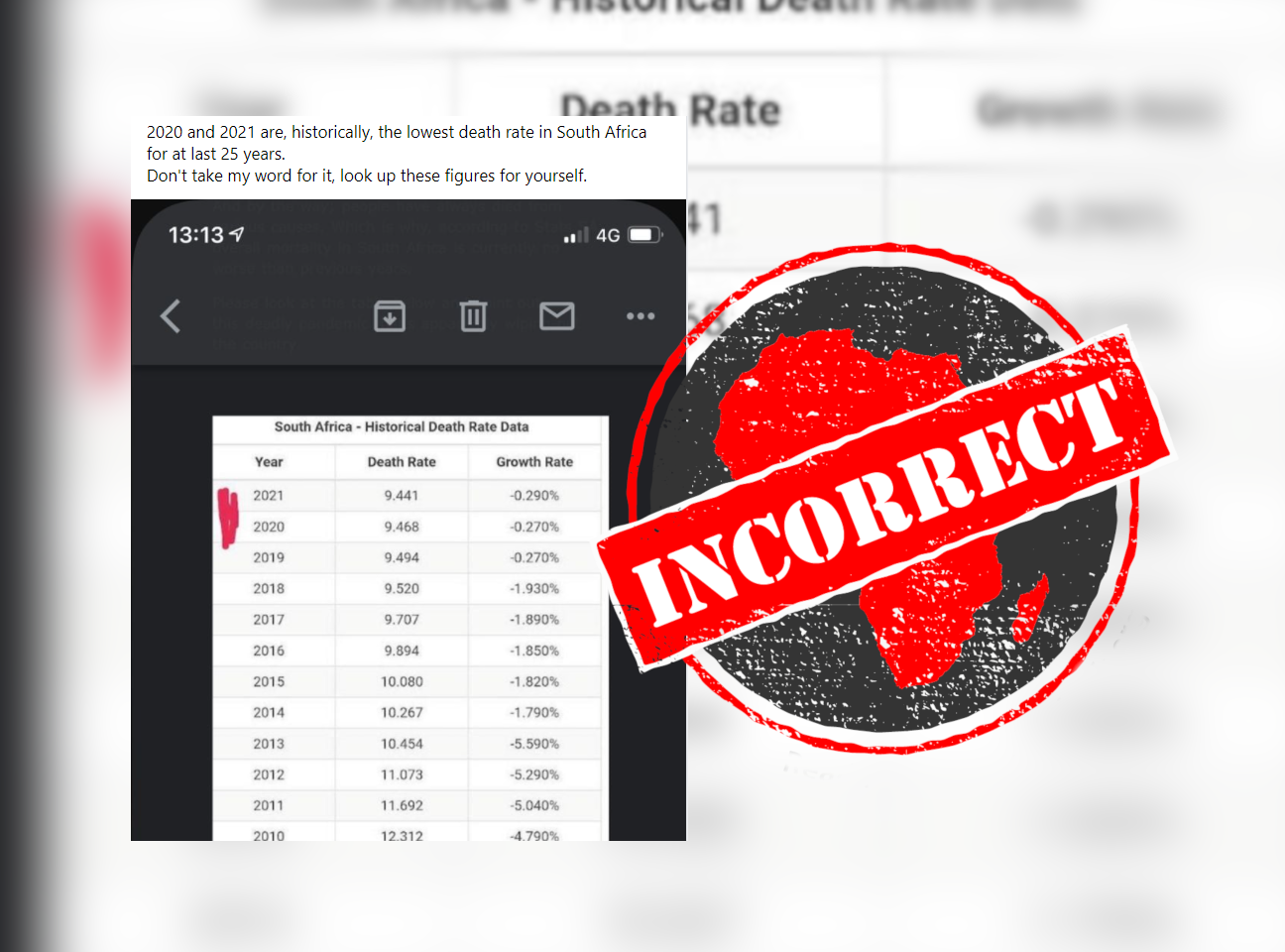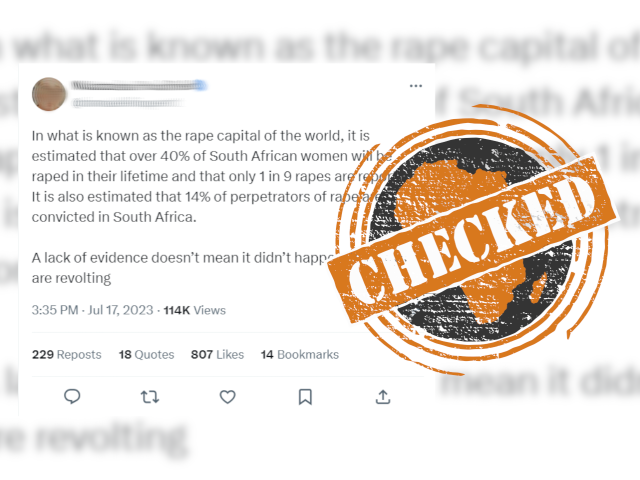The years 2020 and 2021 “are, historically, the lowest death rate in South Africa for at last 25 years”, reads a recent Facebook post. It includes a screenshot of a table labelled “South Africa - Historical Death Rate Data”.
The lowest death rate in the table is for 2021, and the second lowest for 2020 – despite the Covid-19 pandemic. It indicates that South Africa’s death rate has been falling every year since 2009.
But this doesn’t tell the full story. Here’s why the post is incorrect.

Predictions that don’t account for Covid
The table was copied from the website Macrotrends and can be viewed here. Macrotrends sources its data from the United Nations World Population Prospects (WPP), which tracks several indicators to try to predict the global population.
The WPP’s most recent round of population estimates was in 2019, so its data for 2020, 2021 and beyond are projections, not measurements. This means that the death rates listed by WPP and Macrotrends for these years do not reflect actual mortality data.
Macrotrends is clear about this. In a red box at the top of the page listing South Africa’s historical death rates, it writes: “NOTE: All 2020 and later data are UN projections and DO NOT include any impacts of the COVID-19 virus.” It has carried this warning since at least as early as April 2020.
Some people searching for this information may not see the disclaimer. As this Facebook post shows, Google has returned the table in searches for information on South Africa’s death rate – without the disclaimer.
But what are the results of actual measurements of South Africa’s death rates?
Covid has increased mortality, lowered life expectancy
Mid-year population estimates released by Statistics South Africa in July 2021 found that there had been an “approximately 34%” rise in deaths from 2020 to 2021. As a result, average life expectancy in South Africa has fallen.
This was attributed directly to the pandemic. StatsSA wrote in its report that “the demographic impact of direct and indirect Covid-19 deaths on population estimates for the year 2020, were marginal”. This was because the first wave of the pandemic led to relatively few deaths compared to other causes of death in South Africa. The effects of the pandemic were much more noticeable in 2021.
This increase in deaths is also clear in weekly excess death reports published by the South African Medical Research Council (SAMRC). The reports compare all deaths due to natural causes recorded in a particular week to the number of deaths that would be expected in that week based on historical data.
SAMRC has found that “a significant proportion of the current excess mortality being observed in South Africa is likely to be attributable to Covid-19”, although the number of excess deaths is greater than the number of deaths recorded due to Covid-19.
StatsSA has estimated that this may be due to an under-recording of Covid-19 deaths. “It is evident that deaths counted in private and public hospitals during a pandemic do not accurately reflect the mortality rates due to Covid-19 in the country,” it writes. It also says excess deaths could be “collateral deaths arising from constraints on, or overburdening on the health care system due to the Covid-19 pandemic”.
Republish our content for free
For publishers: what to do if your post is rated false
A fact-checker has rated your Facebook or Instagram post as “false”, “altered”, “partly false” or “missing context”. This could have serious consequences. What do you do?
Click on our guide for the steps you should follow.
Publishers guideAfrica Check teams up with Facebook
Africa Check is a partner in Meta's third-party fact-checking programme to help stop the spread of false information on social media.
The content we rate as “false” will be downgraded on Facebook and Instagram. This means fewer people will see it.
You can also help identify false information on Facebook. This guide explains how.





Add new comment